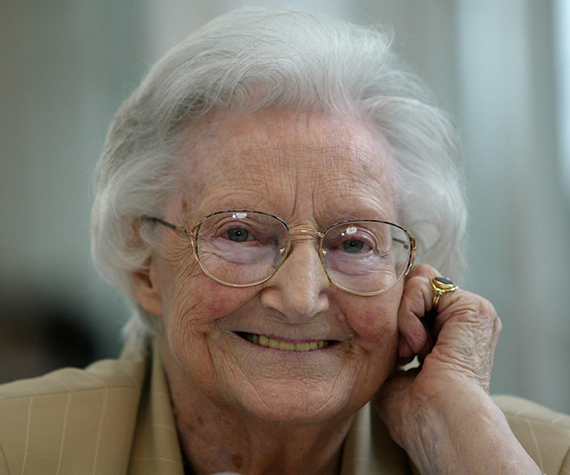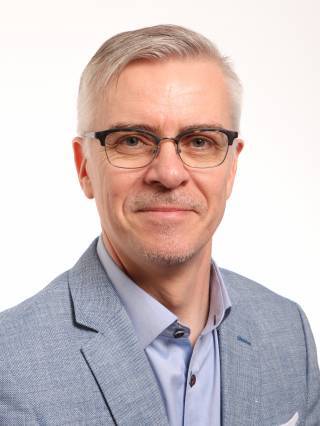
What exactly does the role of a nurse in palliative care involve, and how can nurses impact the development of palliative care systems? Which competencies are essential for this? What is nurse leadership, and how can leadership qualities be nurtured and applied in practice? Sharing their insights and Finland’s experience in building a palliative care system and education with a strong focus on the nursing role are:
Dr. Julie Ling, Ireland
MBA / PhD / MSc / BSc / RGN
Ex-Chief Executive Officer of the European Association for Palliative Care (EAPC).
Technical advisor to the WHO Regional Office for Europe, Palliative Care Track.
Dr. Minna Hökkä, Finland
Registered Nurse, PhD in Health Sciences.
Senior Advisor at Diaconia University of Applied Sciences.
Project Lead at Oulu University Hospital.
Board member of the European Association for Palliative Care.
You can watch the webinar recording in Russian or English on our YouTube channel.
Текст на русском языке
Dr. Julie Ling, Ireland
MBA / PhD / MSc / BSc / RGN
Ex-Chief Executive Officer of the European Association for Palliative Care (EAPC).
Technical advisor to the WHO Regional Office for Europe, Palliative Care Track.
Dr. Minna Hökkä, Finland
Registered Nurse, PhD in Health Sciences.
Senior Advisor at Diaconia University of Applied Sciences.
Project Lead at Oulu University Hospital.
Board member of the European Association for Palliative Care.
You can watch the webinar recording in Russian or English on our YouTube channel.
Текст на русском языке
Content

Dame Cicely Saunders
(1918–2005) was a British nurse, social activist, and the founder of the world’s first modern standalone hospice—St. Christopher’s Hospice. She was awarded the Order of the British Empire for her outstanding contributions to palliative care.

Florence Nightingale
(1820–1910) was a British nurse and social reformer, widely recognised as the founder of modern nursing. She transformed public perceptions of nursing and redefined the role of nurses in safeguarding public health.

Juho Lehto
Professor of Palliative Medicine at Tampere University in Finland and serves as the Chief Physician of the Palliative Care Department at Tampere University Hospital.
Presentation by Dr. Julie Ling
I’ve marked three key words on the slide using three different colours: palliative care, nursing, and leadership. Today, I’ll try to explore all three concepts.

Dr. Julie Ling / Webinar PACED

Webinar PACED
What is Palliative Care?
I’m sure we all understand palliative care, but each of us perceives it slightly differently. It involves care provided to patients diagnosed with incurable illnesses. This care is delivered at home, in hospices, specialised institutions, and within the wider healthcare system. And, of course, it is a system designed to enhance the quality of life.
Palliative care supports healthcare systems by alleviating the burden on hospitals. It eases patients' psychological, physiological, and moral distress, reduces suffering—including spiritual suffering—and helps to maintain the emotional resilience of patients, their families, and the care team.
Palliative care is an interdisciplinary field. It covers a wide range of services and naturally requires collaboration among a broad group of professionals. Unfortunately, this is not always how things are carried out. For example, when it comes to university-level education, it is often difficult to obtain comprehensive training in palliative care.
Palliative care supports healthcare systems by alleviating the burden on hospitals. It eases patients' psychological, physiological, and moral distress, reduces suffering—including spiritual suffering—and helps to maintain the emotional resilience of patients, their families, and the care team.
Palliative care is an interdisciplinary field. It covers a wide range of services and naturally requires collaboration among a broad group of professionals. Unfortunately, this is not always how things are carried out. For example, when it comes to university-level education, it is often difficult to obtain comprehensive training in palliative care.

Framework for palliative care / Webinar PACED
The World Health Organisation has established a framework for palliative care. Its six key components are outlined here.
We must enhance knowledge about palliative care and ensure it is accessible to the broader community. Policy and advocacy efforts are essential—they must underpin and support the delivery of palliative care. We also require data and evidence to assess our work and identify best practices. Access to medications is crucial for patients. In some European countries, access, particularly to opioids, continues to pose a significant issue.
Education and training programmes are necessary to improve the awareness and competencies of all healthcare professionals in palliative care. It is also essential to integrate palliative care directly into national health systems.
At the core of all these efforts, of course, are the patients and their families.
We must enhance knowledge about palliative care and ensure it is accessible to the broader community. Policy and advocacy efforts are essential—they must underpin and support the delivery of palliative care. We also require data and evidence to assess our work and identify best practices. Access to medications is crucial for patients. In some European countries, access, particularly to opioids, continues to pose a significant issue.
Education and training programmes are necessary to improve the awareness and competencies of all healthcare professionals in palliative care. It is also essential to integrate palliative care directly into national health systems.
At the core of all these efforts, of course, are the patients and their families.

Nursing / Webinar PACED
Now Let’s Talk About Nurses
There are approximately 28 million nurses worldwide, yet we still face a workforce shortage—around 6 million more nurses are needed globally. We also see significant professional migration in this field: about 80% of all nurses and mid-level healthcare professionals work in the most developed countries. Still, staffing shortages remain a pressing issue in Western Europe and the United States.
In the European region, healthcare personnel comprise about 61% of the entire healthcare workforce, and 89% are women. They provide essential support to the healthcare system. Nevertheless, a significant gender pay gap persists in the profession.
In the European region, healthcare personnel comprise about 61% of the entire healthcare workforce, and 89% are women. They provide essential support to the healthcare system. Nevertheless, a significant gender pay gap persists in the profession.
Strengthening and expanding nurses' roles in healthcare is critical, especially as the global population ages.
This demographic shift means the demand for nurses and doctors will only continue to grow. While recognition of the importance of the nursing role is gradually increasing, the pace of change is too slow. One European initiative has been forming a senior nursing working group, which convenes regularly to discuss urgent issues and share solutions.

Webinar PACED
What is Leadership?
Some argue that individuals are born with leadership qualities, yet contemporary research suggests that one can learn to be a leader. Nowadays, numerous resources are available to help you cultivate your leadership skills.
- First, we must look inward. How well do we manage our time and respond to change and challenges? Are we able to stay composed under pressure? Can we have confidence in ourselves and present ourselves effectively in professional environments? It’s also important to consider whether we have support systems around us that encourage our growth. All of these factors play a crucial role in shaping our leadership potential.
- The second set of questions pertains to collaborating with others. Often, we are overly critical of ourselves and our colleagues. How well do we listen—truly listen—to others? Can we inspire our colleagues? Do we voice our concerns when things go awry or choose to remain silent? How attentive are we to details? In palliative care, we work in teams, so it’s essential to recognise the strengths of each team member. How aware are we of our own blind spots or biases? Cultural, demographic, or personal differences can shape how we view our colleagues, yet professionalism means remaining objective and fair. Another key point is: do others trust us? Do our actions and communication inspire confidence?
- Lastly, leadership involves assessing the team's performance. Do we understand our team’s long-term goals, and can we influence them? Do we have the resources and support needed to achieve these goals? In palliative care, we frequently encounter emotionally challenging and complex situations. Knowing how to respond appropriately and support our colleagues is essential. We must also evaluate how prepared we are for crises and how flexible we can be when plans change. Perhaps the most crucial question is: Do we enjoy being leaders, and are we ready to take that responsibility within our organisation?

Core leadership skills / Webinar PACED
The image presented outlines the key skills of a leader.
The first skill is self-awareness—understanding whether you are a leader and whether you can guide others.
The second is communication. In palliative care, we interact and actively listen to patients and colleagues. Effective communication is essential, but it must sometimes be emotionally detached.
The third is influence. You can influence patients, their families, colleagues, and leadership regardless of your formal position.
The fourth skill is the ability to learn, or learning agility. Leaders must be adaptable in rapidly changing environments—this flexibility is a cornerstone of strong leadership.
It is also essential to distinguish between a leader and a manager. Many of us have met excellent administrators but not true leaders. One way to think of it is this: if you are a leader, people want to follow you; if you are a manager, people know your title.
Management is about overseeing people or organisations to meet specific goals. Conversely, leadership is about inspiring and motivating people and creating influence through trust and vision. Of course, a manager can also be a leader—and that’s the ideal we should aim for.
The first skill is self-awareness—understanding whether you are a leader and whether you can guide others.
The second is communication. In palliative care, we interact and actively listen to patients and colleagues. Effective communication is essential, but it must sometimes be emotionally detached.
The third is influence. You can influence patients, their families, colleagues, and leadership regardless of your formal position.
The fourth skill is the ability to learn, or learning agility. Leaders must be adaptable in rapidly changing environments—this flexibility is a cornerstone of strong leadership.
It is also essential to distinguish between a leader and a manager. Many of us have met excellent administrators but not true leaders. One way to think of it is this: if you are a leader, people want to follow you; if you are a manager, people know your title.
Management is about overseeing people or organisations to meet specific goals. Conversely, leadership is about inspiring and motivating people and creating influence through trust and vision. Of course, a manager can also be a leader—and that’s the ideal we should aim for.
However, leadership isn’t about power, control, or issuing orders. It’s about support, shared decision-making, and collaborative problem-solving rather than top-down mandates.
Such leadership is particularly effective in palliative care teams, where a collaborative model consistently leads to strong results.
Why Does a Nurse Need Leadership Skills?
Nurses in healthcare, especially palliative care, have deep, hands-on experience working with patients. This experience must be shared, passed on, and used to support others. I genuinely believe we have incredible potential to create change. Combining creativity, nursing expertise, and leadership gives you a powerful force for meaningful, positive transformation.

Cicely Saunders / Webinar PACED
An outstanding example of leadership in palliative care is Cicely Saunders. She began her career as a nurse, became a social worker, and eventually trained as a physician. Saunders was the founder of modern palliative care. She recognised that a multidisciplinary approach was essential—one profession alone was insufficient. What was needed was a team of specialists working together to support patients and their families, addressing as many aspects of their lives as possible to improve their overall quality of life.
Empowering every member of the multidisciplinary team is vital in palliative care. Cicely Saunders developed concepts that still form the foundation of this field today.
I’ve travelled extensively and studied palliative care services in various countries. One pattern I’ve observed is that many leaders in the field are not physicians, but they demonstrate strong leadership skills, know how to bring people together, and play a key role in shaping important decisions.
Empowering every member of the multidisciplinary team is vital in palliative care. Cicely Saunders developed concepts that still form the foundation of this field today.
I’ve travelled extensively and studied palliative care services in various countries. One pattern I’ve observed is that many leaders in the field are not physicians, but they demonstrate strong leadership skills, know how to bring people together, and play a key role in shaping important decisions.
Inspiring individuals can be found everywhere, of that I am certain. These role models are vital within any team.

Webinar PACED
Speaking of role models, we cannot overlook Florence Nightingale—one of the most renowned nurses in the world, whose contributions to the development of nursing are immeasurable. Nightingale once said, “We must never consider our training as finished.” Leadership can be learned, and we must commit ourselves to lifelong learning and inspire those around us to do the same.
The future of healthcare systems depends heavily on the level of professional training. We need a new generation of leaders. For many, the possibility of holding a leadership role is a strong motivator for growth, but unfortunately, not all countries offer clear career pathways for nurses. We must work to change that.
Nurses spend the most time with patients and have the most profound understanding of their needs. That’s why it’s essential to gather and analyse this information and use it to improve the quality of care.
In many regions, access to strong pain medications—especially opioids—is still a challenge. Nurses, being closest to patients, know how vital these medications are. In some countries, nurse-led initiatives have improved access to pain relief.
The future of healthcare systems depends heavily on the level of professional training. We need a new generation of leaders. For many, the possibility of holding a leadership role is a strong motivator for growth, but unfortunately, not all countries offer clear career pathways for nurses. We must work to change that.
Nurses spend the most time with patients and have the most profound understanding of their needs. That’s why it’s essential to gather and analyse this information and use it to improve the quality of care.
In many regions, access to strong pain medications—especially opioids—is still a challenge. Nurses, being closest to patients, know how vital these medications are. In some countries, nurse-led initiatives have improved access to pain relief.
Sometimes, it’s not just about being a skilled professional—it’s about speaking up on behalf of patients and explaining their needs to healthcare systems. As leaders, we must take on that responsibility.
Of course, no one can change the world overnight, but we can all start somewhere. It might be as simple as starting a small peer group to exchange best practices, writing articles, or sharing valuable information. These steps strengthen us, first on a personal level, and eventually within the broader professional community.
Questions for Dr. Julie Ling
Question 1
Were you born a leader or did you acquire leadership skills?
Dr. Julie Ling
I believe continuous self-development is the key to any kind of progress. That’s why, whenever I need to deepen my knowledge in a particular area, I’m never afraid to go back to learning—even if it’s somewhere I’ve already studied.
For example, if you work in a healthcare system where opioid access is difficult, you can explore possible solutions and see what approaches have worked in other countries.
Many organisations support leadership development. PACED promotes education in palliative care, and throughout Europe, many professionals have participated in the European Leadership Programme (ELP). I’ve heard from many alumni about how transformative that experience has been for their careers. It begins with inspiration, then a community forms, support emerges, and eventually, individuals start to feel empowered in their professional roles.
Start small. Don’t ask yourself, “How can I change the world?” Instead, focus on what you can improve right around you. For instance, consider alternatives if a patient complains that no one speaks with them, and the only interaction with a doctor is to prescribe medication. Could you create peer support groups for patients? Could you launch an initiative to improve doctor-patient communication? It’s these small actions that eventually drive significant change.
Leadership isn’t just about holding a formal position—it’s about taking initiative. You'll undoubtedly need additional professional education to advance within your country and healthcare system. But beyond that, what truly matters is a passion for your work.
Question 2
How can collaboration between nurses and doctors be balanced? Doctors are often regarded as the primary decision-makers and leaders, bearing responsibility and making crucial clinical calls. However, nurses also play an essential role in patient care. So, how can leadership be shared between them, and what actually works in practice?
Dr. Julie Ling
Many doctors are more like managers than leaders. Some of them are inspiring—but not all. The traditional power dynamic in healthcare systems tends to favor doctors, and if you want to change that, you need to understand how your country’s healthcare structure works. In some countries, the system remains highly hierarchical.
As a nurse, you can point out that you spend far more time with patients and constantly assess their symptoms, whereas doctors may only see them for a few minutes. You can also lean on your education and clinical skills—pursuing specialised courses and training—to engage in informed, evidence-based conversations with physicians.
Instead of demanding respect or immediate change, you can share your experiences step by step, backing them up with evidence. This helps you build constructive dialogue and strengthen your position as a valued medical team member.
Question 3
This is a question from Kazakhstan, where nurses, including those in palliative care, do not have a bachelor's degree, and no training is available in medical leadership. How can the situation be changed under such conditions?
Dr. Julie Ling
The WHO has long confirmed that palliative care should be part of universal health coverage. Unfortunately, even after ten years, this has yet to be implemented in many countries. However, there are opportunities online and abroad. For example, India offers a relatively affordable one-year palliative leadership course in English. If you dig deeper, you’ll find other similar options. In London, an excellent programme at King’s College accepts international applicants. Also, look for online opportunities—PACED is an excellent resource for staying informed.
Were you born a leader or did you acquire leadership skills?
Dr. Julie Ling
I believe continuous self-development is the key to any kind of progress. That’s why, whenever I need to deepen my knowledge in a particular area, I’m never afraid to go back to learning—even if it’s somewhere I’ve already studied.
For example, if you work in a healthcare system where opioid access is difficult, you can explore possible solutions and see what approaches have worked in other countries.
Learning ignites confidence, which in turn gives one the strength to advocate for change and take a solid stance in the professional community.
Many organisations support leadership development. PACED promotes education in palliative care, and throughout Europe, many professionals have participated in the European Leadership Programme (ELP). I’ve heard from many alumni about how transformative that experience has been for their careers. It begins with inspiration, then a community forms, support emerges, and eventually, individuals start to feel empowered in their professional roles.
No one is born a leader—leadership is something you grow into.
Start small. Don’t ask yourself, “How can I change the world?” Instead, focus on what you can improve right around you. For instance, consider alternatives if a patient complains that no one speaks with them, and the only interaction with a doctor is to prescribe medication. Could you create peer support groups for patients? Could you launch an initiative to improve doctor-patient communication? It’s these small actions that eventually drive significant change.
Leadership isn’t just about holding a formal position—it’s about taking initiative. You'll undoubtedly need additional professional education to advance within your country and healthcare system. But beyond that, what truly matters is a passion for your work.
Question 2
How can collaboration between nurses and doctors be balanced? Doctors are often regarded as the primary decision-makers and leaders, bearing responsibility and making crucial clinical calls. However, nurses also play an essential role in patient care. So, how can leadership be shared between them, and what actually works in practice?
Dr. Julie Ling
Many doctors are more like managers than leaders. Some of them are inspiring—but not all. The traditional power dynamic in healthcare systems tends to favor doctors, and if you want to change that, you need to understand how your country’s healthcare structure works. In some countries, the system remains highly hierarchical.
As a nurse, you can point out that you spend far more time with patients and constantly assess their symptoms, whereas doctors may only see them for a few minutes. You can also lean on your education and clinical skills—pursuing specialised courses and training—to engage in informed, evidence-based conversations with physicians.
Instead of demanding respect or immediate change, you can share your experiences step by step, backing them up with evidence. This helps you build constructive dialogue and strengthen your position as a valued medical team member.
Question 3
This is a question from Kazakhstan, where nurses, including those in palliative care, do not have a bachelor's degree, and no training is available in medical leadership. How can the situation be changed under such conditions?
Dr. Julie Ling
The WHO has long confirmed that palliative care should be part of universal health coverage. Unfortunately, even after ten years, this has yet to be implemented in many countries. However, there are opportunities online and abroad. For example, India offers a relatively affordable one-year palliative leadership course in English. If you dig deeper, you’ll find other similar options. In London, an excellent programme at King’s College accepts international applicants. Also, look for online opportunities—PACED is an excellent resource for staying informed.
Presentation by Dr. Minna Hökkä
A Lack of Competencies Is the Main Barrier
We’ve already discussed many times why talking about palliative care is important. I won’t repeat the obvious, but I’d like to highlight that the demand for palliative care continues to grow.
We’ve already discussed many times why talking about palliative care is important. I won’t repeat the obvious, but I’d like to highlight that the demand for palliative care continues to grow.

Dr. Minna Hökkä / Webinar PACED
This is due to demographic changes and the increasing number of patients needing specialised support. As a result, the need for professionals with the right skills is also growing. That’s why we must focus on education and developing professional competencies in palliative care.
When we discuss nurses' roles, it’s important to acknowledge that they play a key role in patient care. Julie has said this, and I completely agree.
When we discuss nurses' roles, it’s important to acknowledge that they play a key role in patient care. Julie has said this, and I completely agree.
I want to stress that nurses must continuously develop their skills, especially in palliative care, where competencies are becoming increasingly in demand.
Even generalist healthcare professionals should have basic palliative care skills. However, I’m referring not only to the fundamentals but also to the need for advanced expertise among specialised professionals. Why is this so important? A lack of competencies in palliative care continues to be one of the most significant obstacles to enhancing access. This is particularly apparent in rural areas, where professionals with such experience may be unavailable. As a result, patients are left without the support they need.
The Finnish Experience
One of the most common questions I get from colleagues outside the palliative care field is: “We already have mandatory education for doctors and nurses—do we need to include palliative care in these programmes as well?”
My answer is: yes, absolutely. We must continue talking about integrating palliative care into educational programmes. Research shows that palliative care education in Finland is still lacking. Only a few universities offer mandatory courses in palliative care within their medical education programmes. The situation is similar in nursing education—only a limited number of training programmes include palliative care components. And this isn’t unique to Finland—it’s a common issue in many countries.
My answer is: yes, absolutely. We must continue talking about integrating palliative care into educational programmes. Research shows that palliative care education in Finland is still lacking. Only a few universities offer mandatory courses in palliative care within their medical education programmes. The situation is similar in nursing education—only a limited number of training programmes include palliative care components. And this isn’t unique to Finland—it’s a common issue in many countries.
That’s precisely why promoting integration of palliative care into professional education systems is so important.
In recent years, Finland has taken concrete steps in this direction. A national guideline system for palliative care was developed as part of a project funded by the Ministry of Social Affairs and Health. I was fortunate to be one of the experts involved in this project, responsible for creating competencies and education standards recommendations.
We developed a clear career path for nurses specialising in palliative care. Outlining the stages of professional development that these specialists should undergo is essential. These recommendations now guide hospitals, encouraging them to emphasise staff development and continuing education.
We developed a clear career path for nurses specialising in palliative care. Outlining the stages of professional development that these specialists should undergo is essential. These recommendations now guide hospitals, encouraging them to emphasise staff development and continuing education.

Webinar PACED
A comprehensive data analysis was also carried out as part of the project. The slide shows a pyramid developed with the Finnish Ministry of Social Affairs and Health. It illustrates the foundational principles upon which quality palliative care education should be built. At the base of the pyramid is the basic level of training, which includes a broad range of professionals who work with palliative patients. The next level represents those with more advanced knowledge in the field. At the top are highly specialised professionals, including clinical leaders and experts in palliative care.
We conducted extensive research within this project and worked hard to define what it means to be a palliative care specialist. What skills are needed? Which competencies belong to advanced levels, and which are considered fundamental?
We conducted extensive research within this project and worked hard to define what it means to be a palliative care specialist. What skills are needed? Which competencies belong to advanced levels, and which are considered fundamental?
The EduPal Project
Earlier today, we discussed collaboration with doctors and building effective interdisciplinary teams. The project I’m describing was initially envisioned as a joint initiative between doctors and nurses. We worked closely with Professor Juho Lehto, a physician and palliative care specialist, who was the project’s coordinator. At the same time, we each focused on specific components—developing tailored training programmes for nurses and physicians. We shared a common vision and purpose, which made working together easy and productive.
Having such a team made it easier to implement changes in educational programmes. If the project had been developed solely by nurses or physicians, it would have been impossible to call it truly interdisciplinary. By joining forces, however, we were able to expand the scope and impact of the project significantly.
Having such a team made it easier to implement changes in educational programmes. If the project had been developed solely by nurses or physicians, it would have been impossible to call it truly interdisciplinary. By joining forces, however, we were able to expand the scope and impact of the project significantly.

Competence descriptions / Webinar PACED
We’ve collected a large volume of national-level data and created a competency framework for nurses at the basic level, physicians, and associated professionals.
A systematic review of existing data clearly showed that leadership is a key competency required in palliative care. Professionals in this field must be able to collaborate effectively within teams, demonstrate empathy, and respond to patients’ needs. Nurses in palliative care are not only providers of clinical support—they often take on leadership roles.
We also surveyed professionals working in palliative care, including nurses, physicians, and other specialists. We asked them which competencies they considered most important, and based on their responses, we developed a comprehensive competency framework to incorporate into educational programmes. When we compared the educational expectations for physicians and nurses, we found a significant discrepancy in the level of professional requirements.
A systematic review of existing data clearly showed that leadership is a key competency required in palliative care. Professionals in this field must be able to collaborate effectively within teams, demonstrate empathy, and respond to patients’ needs. Nurses in palliative care are not only providers of clinical support—they often take on leadership roles.
We also surveyed professionals working in palliative care, including nurses, physicians, and other specialists. We asked them which competencies they considered most important, and based on their responses, we developed a comprehensive competency framework to incorporate into educational programmes. When we compared the educational expectations for physicians and nurses, we found a significant discrepancy in the level of professional requirements.
Specialist-level nurses were expected to meet far more criteria than physicians at the same level.
A separate patient survey explored their expectations toward nurses. The results showed that patients wanted nurses to help them feel safe, particularly at the end of life. They valued nurses having time to speak with them and saw nurses as people who could voice and protect their interests. This underscores the need for nurses to develop clinical skills and leadership capacities that allow them to influence care systems.
We also posed similar questions to government stakeholders and healthcare decision-makers. Based on the findings, several academic papers have already been published. Additionally, we reached out to nursing students to understand how they see their future in the profession. As previously mentioned, the nursing profession is evolving, and our survey confirmed this. Students already recognise the importance of interdisciplinary education and the need for clear decision-making processes in palliative care. Even during training, they begin to see themselves as future leaders.
As part of this project, we developed an educational programme, assessed its effectiveness, and embedded it into the national education framework. This means that all universities of applied sciences in Finland must now include at least some elements of our recommendations in their curricula. As a result, we laid the foundation for systemic educational change in palliative care. To date, around 600 professionals have completed training based on this model. We are also working on masters-level programmes in nursing, with 70 students already trained under the new national recommendations since January.
We also posed similar questions to government stakeholders and healthcare decision-makers. Based on the findings, several academic papers have already been published. Additionally, we reached out to nursing students to understand how they see their future in the profession. As previously mentioned, the nursing profession is evolving, and our survey confirmed this. Students already recognise the importance of interdisciplinary education and the need for clear decision-making processes in palliative care. Even during training, they begin to see themselves as future leaders.
As part of this project, we developed an educational programme, assessed its effectiveness, and embedded it into the national education framework. This means that all universities of applied sciences in Finland must now include at least some elements of our recommendations in their curricula. As a result, we laid the foundation for systemic educational change in palliative care. To date, around 600 professionals have completed training based on this model. We are also working on masters-level programmes in nursing, with 70 students already trained under the new national recommendations since January.
What Are We Working on Now?
We have secured substantial funding from the Ministry of Social Affairs and Health, and our current objective is to incorporate palliative care into the healthcare system, ensuring that patients can access it as a standard component of care.

Map of Finland / Webinar PACED
Here's a map of Finland. I am responsible for the northern region, which is the largest but also the most sparsely populated area in the country. All other regional leaders—except me—are physicians. I want to highlight this to show that nurses can also be leaders in the development of palliative care. Together, we design specialised training programmes, set standards for home-based palliative care, and define the core competency levels for nurses working in this field.
In 2023, we opened a palliative care ward in northern Finland. That was when we realised how crucial it is to equip nurses working in remote areas with strong leadership skills—so they can build effective care systems in their regions and form strong local teams.
We know that theoretical knowledge is not enough—practical skills must also be developed. That’s why we are now moving to the next level. The NursEduPal@Impact project, launched in December 2023, aims to support the ongoing development of palliative care.
We also have a dedicated working group within the EAPC that focuses on innovation in nursing education for palliative care. Our next step is to collect data and conduct a Europe-wide survey.
Another important interdisciplinary initiative is CODE-YAA, a project aimed at improving palliative care education. At the moment, we are developing tools to assess the quality of educational programmes.
In 2023, we opened a palliative care ward in northern Finland. That was when we realised how crucial it is to equip nurses working in remote areas with strong leadership skills—so they can build effective care systems in their regions and form strong local teams.
We know that theoretical knowledge is not enough—practical skills must also be developed. That’s why we are now moving to the next level. The NursEduPal@Impact project, launched in December 2023, aims to support the ongoing development of palliative care.
We also have a dedicated working group within the EAPC that focuses on innovation in nursing education for palliative care. Our next step is to collect data and conduct a Europe-wide survey.
Another important interdisciplinary initiative is CODE-YAA, a project aimed at improving palliative care education. At the moment, we are developing tools to assess the quality of educational programmes.
We all have the potential to advance this agenda, regardless of whether we work in a clinic, an educational institution, or a university.
Even if our roles and responsibilities differ, we are all leaders in our own way. We must be competent professionals capable of supporting patients and their families. We need to be experts in our specific fields. We also have a responsibility to support our colleagues, help them grow, and promote our agenda, including on the international level. As nurses, we have powerful tools for making an impact.
Questions for Dr. Minna Hökkä
Question 1
What criteria do you employ to assess the success of the educational courses you have developed?
Dr. Minna Hökkä
We conduct surveys before and after the course. We've also developed a variety of other educational interventions—ways of engaging with students during their studies—that allow us to gather valuable observational insights. Additionally, we plan to integrate course graduates into our ongoing projects.
Question 2
What textbooks would you recommend on the topic of leadership in healthcare?
Dr. Minna Hökkä
Unfortunately, I don’t have a specific textbook to recommend, but I can suggest looking into research articles and resources published by the American Association of Colleges of Nursing (AACN).
Dr. Julie Ling
Funding often becomes a barrier to creating a comprehensive textbook—it’s truly expensive. However, academic articles are often available for free, and if they are behind a paywall, you can try accessing them through university libraries. A great resource is the Harvard Business Review, where you can find many helpful ideas and strategies on management and leadership. I also recommend searching for materials published on Google Scholar.
Question 3
What arguments do you use when engaging with government agencies? Do you have any recommendations for colleagues on how to build this interaction effectively?
Dr. Minna Hökkä
I can highlight three key recommendations.
First, present compelling arguments. When I spoke with the head of a working group, I explained that to truly develop palliative care, nurses must be included in decision-making—after all, they constitute the majority of professionals in the field. Every working group requires members with hands-on, practical experience.
Secondly, prepare for meetings! Review strategies, policy documents, and even any 'Top 10 recommendations for advancing an agenda. ' When I first approached the ministry, I was unprepared, acting on instinct, and I merely got lucky. Today, I would approach it much more intentionally.
Thirdly, bear in mind that the key to driving change is to be proactive. It is essential to be both seen and heard.
What criteria do you employ to assess the success of the educational courses you have developed?
Dr. Minna Hökkä
We conduct surveys before and after the course. We've also developed a variety of other educational interventions—ways of engaging with students during their studies—that allow us to gather valuable observational insights. Additionally, we plan to integrate course graduates into our ongoing projects.
Question 2
What textbooks would you recommend on the topic of leadership in healthcare?
Dr. Minna Hökkä
Unfortunately, I don’t have a specific textbook to recommend, but I can suggest looking into research articles and resources published by the American Association of Colleges of Nursing (AACN).
Dr. Julie Ling
Funding often becomes a barrier to creating a comprehensive textbook—it’s truly expensive. However, academic articles are often available for free, and if they are behind a paywall, you can try accessing them through university libraries. A great resource is the Harvard Business Review, where you can find many helpful ideas and strategies on management and leadership. I also recommend searching for materials published on Google Scholar.
Question 3
What arguments do you use when engaging with government agencies? Do you have any recommendations for colleagues on how to build this interaction effectively?
Dr. Minna Hökkä
I can highlight three key recommendations.
First, present compelling arguments. When I spoke with the head of a working group, I explained that to truly develop palliative care, nurses must be included in decision-making—after all, they constitute the majority of professionals in the field. Every working group requires members with hands-on, practical experience.
Secondly, prepare for meetings! Review strategies, policy documents, and even any 'Top 10 recommendations for advancing an agenda. ' When I first approached the ministry, I was unprepared, acting on instinct, and I merely got lucky. Today, I would approach it much more intentionally.
Thirdly, bear in mind that the key to driving change is to be proactive. It is essential to be both seen and heard.

